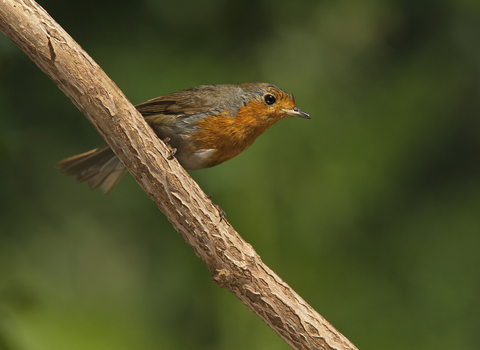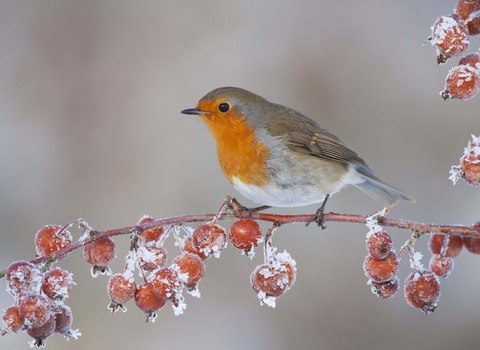
Robin ©Neil Aldridge

©Mark Hamblin/2020VISION

©Mark Hamblin/2020VISION
Robin
The much-loved robin is a garden favourite and one of our most familiar birds, adorning Christmas cards every year. It is very territorial, however, and will defend its post with surprising ferocity.
Scientific name
Erithacus rubeculaWhen to see
January to DecemberSpecies information
Statistics
Length: 14cmWingspan: 21cm
Weight: 18g
Average lifespan: 2 years
Common. Classified in the UK as Green under the Birds of Conservation Concern 5: the Red List for Birds (2021).
Habitats
About
The robin is one of the most familiar birds of the UK, regularly visiting gardens. Robins are also common in parks, scrub and woodland, making their presence known with a loud, territorial song. They sing from prominent perches right through the winter, when both males and females hold territories; indeed, they are fiercely territorial, driving off intruders and even fighting. During the breeding season, the female is allowed into the male's territory where she sets up a nest of dead leaves, moss and hair. Nests often crop up in the oddest of places, such as plant pots, old wellies and shelves, but Ivy and other shrubs are their natural choice.How to identify
The robin really is unmistakeable: brown above, with a white belly and a famously red breast. Young robins are mottled gold and brown, and do not have a red breast.Distribution
Widespread.Did you know?
Robins have been associated with Christmas ever since Victorian times; Victorian postmen, who were known as 'robin red-breasts' because of their red waistcoats, are thought to be the inspiration for so many robins appearing on our Christmas cards. Whether it's the case or not, robins certainly make themselves known in winter with their loud, aggressive song!Watch
Robin (https://vimeo.com/292102445)
Robin ©John Bridges
